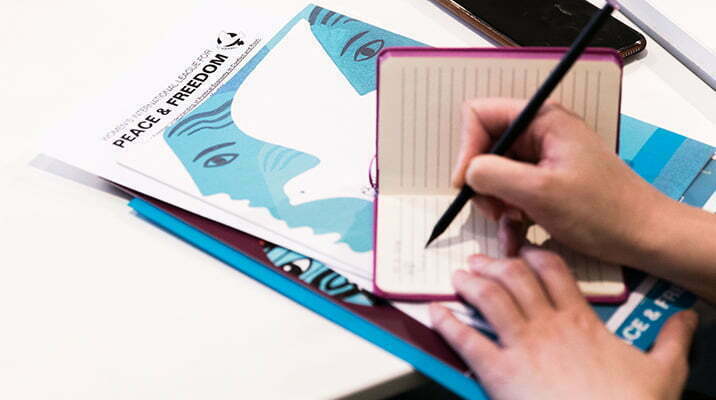The overwhelming reaction at WILPF International to the announcement of the Nobel Peace Prize winner today was one of shock, with more than a few choice words being thrown around the office!
Certainly, the decision to award the prestigious accolade to the EU was not something we were expecting, given its current social and economic instability.
But let’s not be too quick to judge! If we compare the reasons why our founding sisters created WILPF to the EU’s original framework, we can see some striking similarities.
WILPF was created with five main concepts in mind. They were:
- Universal disarmament. The WILPF founders identified immediately the necessity for regulation and reduction of arms. At their 1919 Triennial Congress, they emphasised the importance of trade treaties between countries.
- The recognition that the root causes of conflict is social and economic injustice.
- The desire to create an international economic order founded on the principle of meeting the needs of people and not those of profit or privilege.
- The political enfranchisement of women.
- Equal access to human rights.
Now let’s take a look at the reasons the EU was formed. It was established to bring about peace and end wars between neighbouring European countries – a goal that WILPF itself was founded upon. And in that respect, the EU’s been successful!
It was also made with the idea in mind that economic interdependence would strengthen peace, a nod to WILPF’s idea in point 2 above (that the root cause of conflict is economic injustice). The Schuman Declaration was formed in 1950 to create a common market where the raw materials coal and steel would make EU countries economically integrated – something that played a big part in its peaceful history.
Let us not also forget that the EU was founded on a commitment to respect human rights, democracy and the rule of war. It has an excellent human rights framework, one that resonates clearly with WILPF’s wish for equal access to human rights.
Lastly, in recent years, the EU has turned its eye to the issue of the arms trade, and has issued embargoes that are legally binding to its member states. This acknowledgement of the negative effects of arms is a step forward in WILPF’s aim for universal disarmament.
So actually, the original intentions of the EU parallel those of WILPF more than we’d expected.
Importantly, however, although we might agree with the EU’s original intentions, their implementation is perhaps a different matter. It has, of course, been very successful in establishing peace within its body. But it has done little to exert external pressure. At a time when the MENA region is plagued by conflict, Syria being only one example, the human rights framework that the EU imposes amongst its member countries should be enforced abroad.
So although the Nobel Peace Prize is an acknowledgement of the EU as a model framework, it should also be a reminder to the EU that it must deliver on its ideals. Now, more than ever, we need a real arms agreement between the EU based on principles they put forward for the control of arms. We need action rather than talk if we are going to be able to look back on this historic moment and truly feel that the Prize was deserved.
And, as ever, in awarding the Nobel Peace Prize to the EU, the governing committee have ignored the countless international achievements of women worldwide. We can think of more than a few women worthy of the Prize this year…





